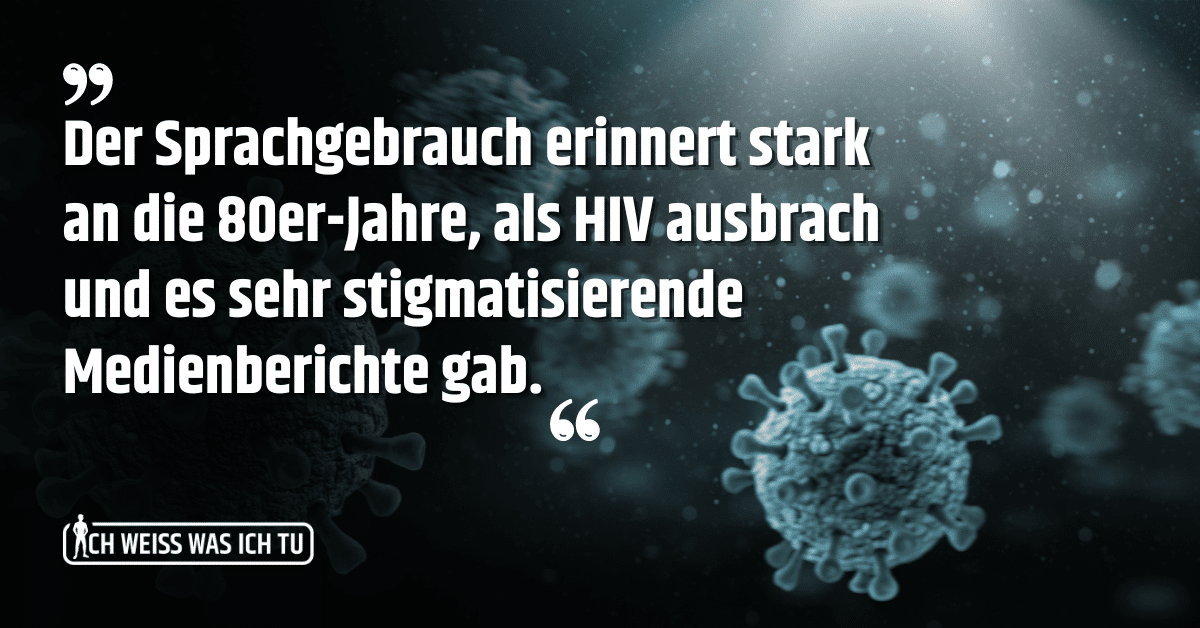Lutz, how are you?
At the moment, eleven days after the early symptoms, I'm doing well again and have almost recovered. I already felt better on the third day, luckily it passed quickly for me.
You are the first MPX, or "monkeypox" case in the Rhein-Erft district. How did you realise that something was wrong?
On the night of 25 May, five days after my return from my holiday in Maspalomas, the symptoms appeared: Lymph node swelling in the groin area, a fever of 39 degrees and a smallpox in the genital area. In my case, it took about two weeks from the suspected infection in Gran Canaria for the first symptoms to appear. I realised that it was MPX, or "monkey pox", because an acquaintance of mine - who I met by chance on holiday - had tested positive three days before me. He told me about the symptoms and advised me to look out for something similar. So when I had the same symptoms, I went straight to the emergency department at Cologne University Hospital, where they carried out a smallpox smear and PCR. On Friday 27 May, I got the call that I had tested positive.
Would you like to tell us how you got infected?
Probably at the Maspalomas Pride. I met my German friend by chance at a party there. We both had close physical contact there, but also afterwards with others at private sex parties. There were lots of people from different European countries there. Among them was a Berliner who also got infected in Maspalomas.
How did your infection progress?
The fever went away quickly in two days, but the swelling of the lymph nodes persisted for a week. Now they are only slightly swollen, not as much as before. I had four smallpox, one on my genital area, one on my right upper arm, one on my bum and the fourth on my head under my hair. At first they looked like normal pimples, then they had a whitish crust with fluid inside, about a centimetre in size. Three of them are now barely visible. The one in the genital area will take some time to disappear. I didn't have to take any medication, they heal on their own.
"21 days of isolation is very hard for me."
It sounds hard, being alone in isolation with a virus that only a few people in Germany have.
But I'm not afraid of the disease, because fortunately I have a very mild course. However, 21 days of isolation is very hard for me. I feel very lonely and alone during this time: I write and phone a lot with friends, family and acquaintances. That helps me.
And how was the communication with the health authority?
Immediately after my positive test result on 27 May, the public health department called me and told me that I had to go into quarantine for at least 21 days. They also asked who I had been in contact with. They also call me regularly and ask about the development of my symptoms. In my case, the quarantine ends automatically when everything has healed without me having to be examined by a doctor again, but the health authorities take different approaches here.
"I believe that there could always be individual cases due to the contacts, but that a pandemic will not occur."
Do you think there could be an outbreak in Germany?
The virus is not at all easy to transmit, you have to make an effort: We had very close physical contact. I believe that there could always be individual cases as a result of contact, but that there won't be a pandemic.
"It's true that we are severely affected, but I don't like the idea of talking about a risk group."
Some expressions are used in the media that could promote stigmatisation and discrimination against gay and bisexual men. How do you perceive this discussion now?
It is partly stigmatising. It's clear that more gays are affected by MPX, but it can affect anyone. The information that we are severely affected is correct, but I don't like talking about a risk group. The use of language is very reminiscent of the 1980s, when HIV broke out and there were very stigmatising media reports. Words such as risk group should be reformulated and replaced by, for example, "frequently affected people".
How do the people around you react? Are they happy to help you or do you have the feeling that there are prejudices or fears?
The people around me reacted really cool and immediately offered me help with shopping, for example. I didn't notice any fears or prejudices.
"There's no point in being afraid during sex. Fear takes the fun out of sex. I really enjoy having fun!"
With what you know and experience now: Would you have wanted to do your Maspalomas holiday differently?
I wouldn't have spent my holiday any differently and would have done exactly the same. There's no point in being afraid during sex. It can always happen that you catch something. Fear takes the fun out of sex. I really enjoy having fun!
What should be done now?
Watch out for the spread, educate people! I, for example, got the symptoms all at once. But my friend's symptoms came on gradually. So the symptoms can vary from person to person. You should always look out for symptoms and get tested if you suspect something. It is also important to build up your testing capacity.
| More info on MPX ("monkeypox") |
| MPX information at IWWIT: https://www.iwwit.de/affenpocken MPX ("monkeypox"): Number of cases on the rise, vaccination is coming MPX information from Deutsche Aidshilfe: https://www.aidshilfe.de/affenpocken STIKO puts recommendation for vaccination against MPX ("monkeypox") to the vote |










